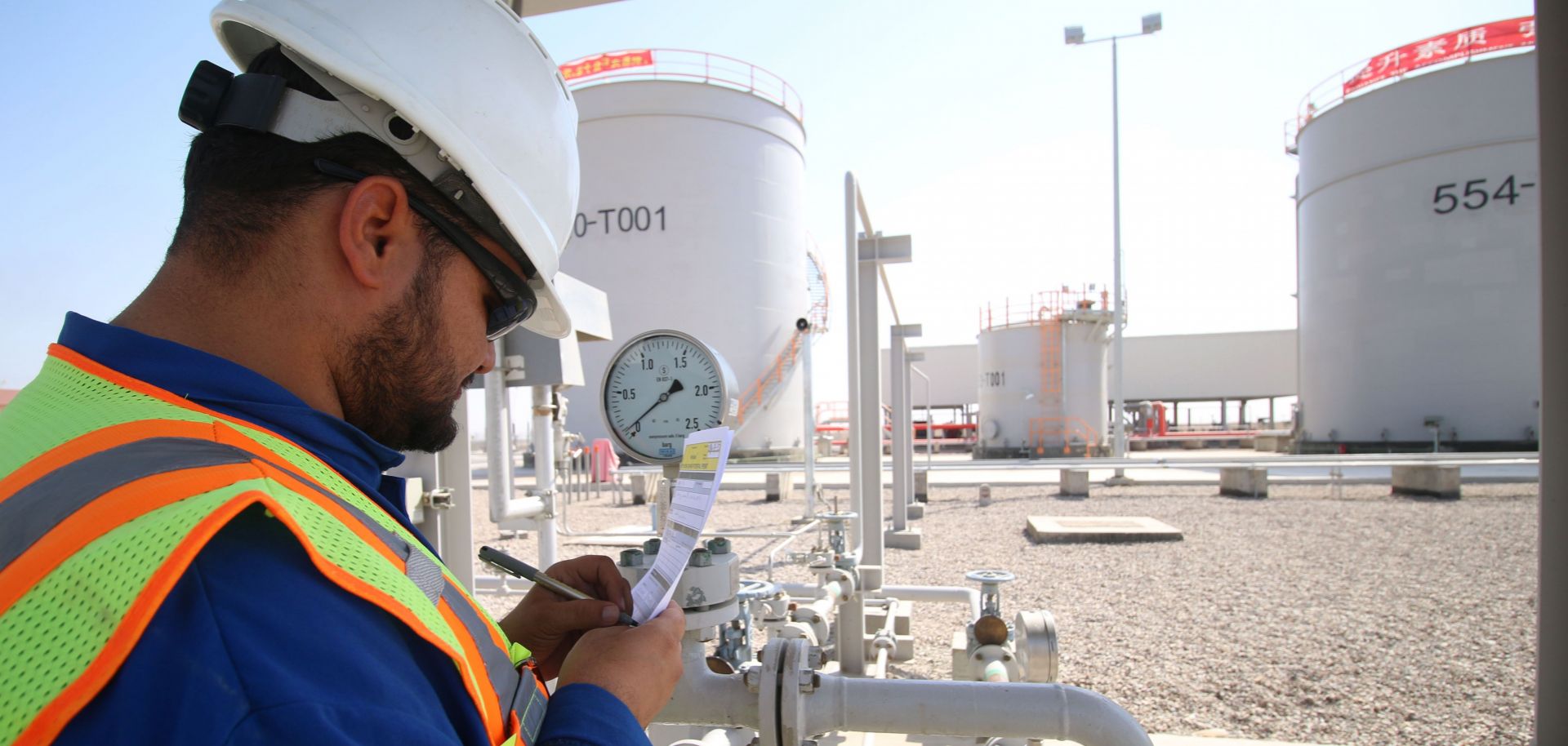ASSESSMENTS
Nuclear Power's Fading Moment in the Middle East
Jun 7, 2018 | 10:00 GMT

An employee works at the Rumaila natural gas power station in southern Iraq. Like most countries in the Middle East, Iraq relies on natural gas for much of its electricity generation.
(HAIDAR MOHAMMED ALI/AFP/Getty Images)
Highlights
- Demographic, climatic, economic and technological pressures over the next several decades will force key countries in the Middle East and North Africa to gradually expand and diversify their electric power grids.
- Advances in competing technologies and high costs will put nuclear power at a disadvantage compared with other electricity-generating options. Even so, countries in the region will continue to pursue nuclear power given its accompanying political prestige.
- The window for regional powers to develop unrestricted nuclear programs is closing fast. Economic realities will weaken their arguments for civilian nuclear power, allowing global powers to justify asserting more control over the expansion of nuclear programs in the region.
Subscribe Now
SubscribeAlready have an account?
